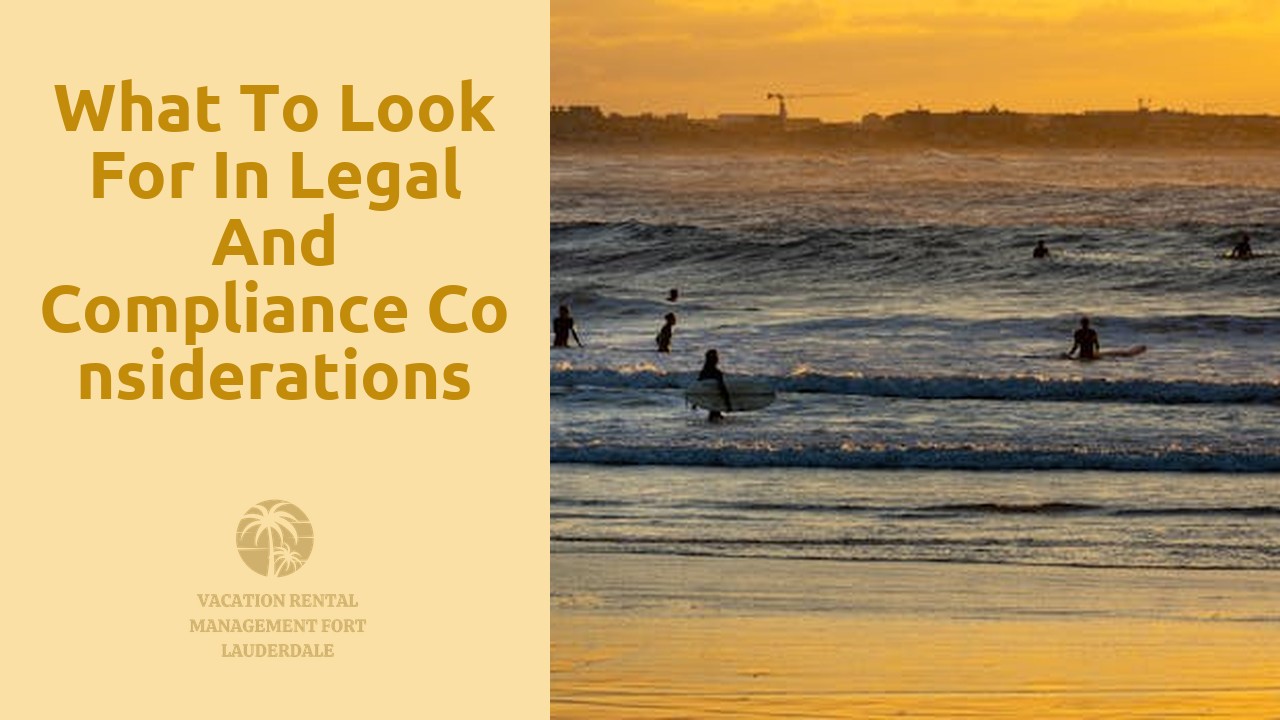
What to Look for in Legal and Compliance Considerations for Vacation Rentals
Table Of Contents
Lease Agreements and Terms
When it comes to vacation rentals, having clear and concise lease agreements and terms is essential for both the property owner and the guests. These agreements outline the rights and responsibilities of each party, helping to set expectations from the beginning. Make sure to include details such as the duration of the rental, the rental rate, any security deposit requirements, and rules regarding cancellations and refunds. Clearly outlining these terms can help prevent misunderstandings and disputes down the road.
Additionally, it is crucial to include clauses in the lease agreements that address issues such as property maintenance, liability for damages, and dispute resolution processes. By clearly stating these terms in the agreement, both parties are aware of their obligations and how potential issues will be handled. Transparency and communication are key when it comes to lease agreements for vacation rentals, ensuring a smooth and enjoyable experience for both hosts and guests.
Drafting Clear Rental Terms and Conditions
When it comes to drafting clear rental terms and conditions for vacation rentals, precision and clarity are key. Ambiguity can lead to misunderstandings and disputes down the road, so it's essential to be detailed and thorough in outlining the rules and expectations for guests. Start by clearly stating the duration of the rental period, including check-in and check-out times, to avoid any confusion.
Additionally, be specific about the rental rates, fees, and payment schedule to ensure that both parties are in agreement. Clearly outline any additional charges that may apply, such as cleaning fees or security deposits, and provide information on how these fees are calculated and when they are due. By being transparent about the financial aspects of the rental, you can establish trust with your guests and set clear expectations from the beginning.
Environmental Compliance
When it comes to vacation rentals, ensuring environmental compliance is crucial to uphold ethical and legal standards. One key aspect involves following local regulations for waste disposal and conservation. This includes properly managing and disposing of waste generated by guests, as well as implementing practices to conserve water and energy within the property. By adhering to these guidelines, vacation rental owners can minimize their environmental impact and contribute to sustainability efforts in the community.
Another important consideration for environmental compliance in vacation rentals is maintaining the property in an eco-friendly manner. This can involve using environmentally friendly cleaning products, reducing single-use plastics, and implementing recycling programs for guests. By taking proactive steps to reduce the property's carbon footprint and promote sustainable practices, vacation rental owners can attract environmentally conscious guests and demonstrate their commitment to environmental responsibility.
Following Local Regulations for Waste Disposal and Conservation
When it comes to operating a vacation rental, ensuring compliance with local regulations for waste disposal and conservation is paramount. Property owners must familiarize themselves with the specific guidelines set forth by their city or town regarding trash collection schedules, recycling practices, and any other waste management requirements. Failure to adhere to these regulations can result in fines or penalties, so it's crucial to stay informed and proactive in this area.
In addition to waste disposal, conservation efforts should also be a top priority for vacation rental owners. Implementing energy-efficient practices such as using programmable thermostats, installing low-flow fixtures, and choosing eco-friendly cleaning products can not only help protect the environment but also save on utility costs in the long run. Furthermore, encouraging guests to participate in conservation measures during their stay, such as reusing towels and turning off lights when not in use, can contribute to a more sustainable operation overall.
Noise and Nuisance Regulations
Noise and nuisance regulations play a crucial role in ensuring a peaceful coexistence between vacation rental guests and the surrounding community. Understanding the specific quiet hours and neighborhood restrictions is essential for hosts to maintain a positive relationship with neighbors and avoid potential conflicts. It is advisable for hosts to clearly communicate these regulations to guests in advance to set the right expectations and foster a respectful environment during their stay.
In addition to adhering to quiet hours, hosts should also proactively address any potential sources of nuisance that could disrupt the harmony of the neighborhood. This includes monitoring noise levels, especially during late hours, and promptly addressing any complaints or concerns raised by neighbors. By being mindful of noise and nuisance regulations, hosts can not only ensure the comfort and satisfaction of their guests but also uphold the reputation of their vacation rental property within the local community.
Understanding Quiet Hours and Neighborhood Restrictions
To maintain a harmonious relationship with neighbors, it is crucial to understand and adhere to quiet hours and neighborhood restrictions when managing a vacation rental property. Quiet hours typically refer to designated times during the day or night when excessive noise should be minimized to avoid disturbances to nearby residents. It is essential to be aware of the specific quiet hour regulations in the area where your vacation rental is located, as violating these rules could lead to complaints, fines, or even legal action.
Neighborhood restrictions may encompass a variety of regulations that aim to preserve the peaceful environment of the community. These restrictions could include limitations on parking, outdoor gatherings, or even the type of activities allowed on the property. By familiarizing yourself with these neighborhood rules and ensuring that your guests are informed and compliant, you can mitigate potential conflicts with neighbors and maintain a positive reputation as a responsible vacation rental host.
Related Links
How to Set Competitive Pricing for Vacation Rental PropertiesWhat to Include in Vacation Rental Property Listings
Roundup of the Best Practices in Vacation Rental Management
Top Strategies for Managing Vacation Rental Properties
Why Legal Compliance is Important in Vacation Rental Management
The History of Vacation Rental Management in Fort Lauderdale
Review of Vacation Rental Management Software